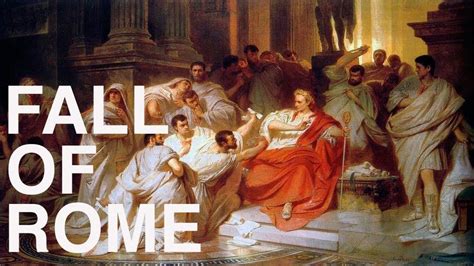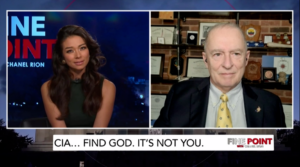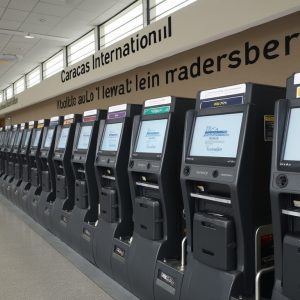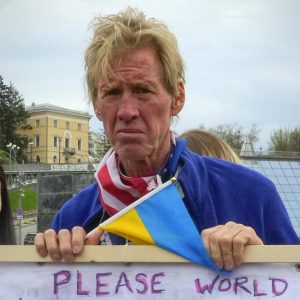THE 2022 CHRONICLES
Part I: 2022—A Tipping Point Year for Democracy?
“Under a democratical government, the citizens exercise the powers of sovereignty; and those powers will be first abused, and afterwards lost, if they are committed to an unwieldy multitude.”
Edward Gibbon
The History of the Decline and Fall of the Roman Empire
“We found that Americans are losing faith in their democracy, arguably worse than ever before. They’re losing faith in elections, institutions, and the ability of democracy to survive. Everything is negative.”
Carly Cooperman
Pollster (December 2021 survey)[1]
“Why do humans who possess or acquire unaccountable power over others invariably abuse it?”
John Naughton
Author, From Gutenberg to Zuckerberg[2]
This week, I read an interesting article based on a new survey from the World Economic Forum. The core concept of the article: as bad as the pandemic waves of COVID-19 are in the early days of 2022, the world elites are far more terrified by the prospects of “social cohesion erosion.”[3]
What is that?
According to the WEF, it is the echoes of a crumbling of civil society and poses the most critically global threat for the next 10 years: rising divisions and polarization in society, continuing income inequalities exacerbated by the pandemic’s lopsided recovery (51 million people are projected to live in extreme poverty by 2030 while billionaires grow ever richer), the fissures created by opposing viewpoints on vaccines and on face-mask mandates, and rallying cries for long-awaited racial justice in historically oppressed communities.[4]
In short, a pessimistic scenario that is a harbinger of things to come.
What are the broader manifestations of this social cohesion erosion? Widespread youth disillusionment, the collapse of social security networks, mental health deterioration and an ongoing opioid crisis, a livelihood crises (the “Great Resignation”), and massive supply chain meltdowns.
Welcome to the opening weeks of 2022!
The pessimism is thick enough these days, you can almost cut it with a knife. (I lost track of the number of articles in the first two weeks of 2022 warning we were on the verge of another civil war).
Americans are uneasy.
This morning, I read the results of a troubling new poll conducted in December 2021, which demonstrated, among other things the following: 51 percent of those surveyed agreed with the statement “U.S. democracy is at risk of extinction;” this fear falls evenly along partisan fault-lines (49 percent Democrat and 49 percent Republican respondents—although each are quick to blame the other side for the loss of faith); the results are more pronounced among younger respondents—in ages 18-29 only 21 percent agree that U.S. democracy is “safe;” and, 47 percent agreed with statement that there was “real cases of fraud in the 2020 election that changed the outcome.”[5]
Of course, as a former analyst, one knows better than to place too much trust in polls with a limited sample size (here 800 respondents).
But there is more. Much more, I respectfully suggest, than the gloomy outlook by the global WEF elites or a limited New York newspaper poll: many others are seeing the year ahead as a pivotal turning point. In this light, I recently read an article—“22 Predictions For 2022, And Why This Is Malcolm Gladwell’s Tipping Point Year.” The article sees global events coalescing in a unique way: abnormal sudden shifts being experienced at a rapid and unpredictable manner; the spread of COVID-19 variants such as Omicron; the spread of other non-disease “epidemics;” the laws of the few; connectors, mavens, and the power of context to change; stickiness factors; and, the power of how we think and act.
In this regard, the article notes: “2022 is going to be a tipping point for each of us … The tipping point is defined as the moment of critical mass, the threshold, and the boiling point. It is the point when everyday things reach epidemic proportions.”[6] Among the events predicted in the article: dramatic increase in mass automation (driven by labor shortages, cheap capital and resource shortages); a more ubiquitous AI; EVs as a new norm; a major US professional sports betting scandal; the fusion of pandemic concerns and climate activity driven by Generation X and Z; a further shaping of the “Great Resignation”; more widespread AI-related security concerns; the spread of non-sovereign currencies; the richest .1% will disappoint us more than before; more fully-automated “dark factories”; China becomes a clear public threat; and, lots of vastly different things will happen.[7]
“Sigh.”
I have told this story numerous times over the years to my college students. Several years ago, when I was working with the Agency, we had an intelligence exchange with our primary allied services in London, England. One of our sessions was held the War Ministry building, in a huge room with multiple chandeliers and the longest wooden table I have ever seen. The walls were tastefully decorated with large, expensive oil paintings of the famous naval engagements of the British Empire: Trafalgar, Battle of the Nile, the defeat of the Spanish Armada, and Jutland. The room was studded with busts of the great British commanders: Admiral Lord Horatio Nelson, Field Marshal Montgomery, the Duke of Wellington, and Lord Kitchener. I gawked like a child at the elaborate surroundings. There I was, seated amidst symbols of the legacy, glory and powerbrokers of the 400-year British Empire.
My mind, however, was seized by another thought: did the British war planners, key intelligence players, and political leaders that gathered in this very room after 1919 realize their empire was in decline?
The memory of that event—and the disturbing realization that came with it—is a frequent mental visitor for me these days. Especially as I read news stories (sorted by my social media algorithm), hear commentators shout at each other as I troll through the television channels, notice rising prices and increasingly empty shelves in stores, pay more and more at the gas pump, watch and listen to the “gutterization” (my word) of movies and music, read how the elites design ways to escape the coming chaos (either in underground vaults, farms in New Zealand, outer space or the metaverse), hear the ever-louder drumbeats for war, or listen to the conversations or e-mails from my friends.
Some politicians tell us things have never been better.
I wonder what they are smoking …
As for me, I see the sights and hear the sounds of an American Empire in decline everywhere around me.
One of my favorite commentators these days is Ray Dalio. The 72-year-old Dalio founded Bridgewater Associates in 1975, at the age of 26, and has successfully anticipated several major economic events, most notably the global financial collapse of 2008. (Or at least that is what his press releases say). Dalio’s latest provocative book, Principles for Dealing with the Changing World Order: Why Nations Succeed and Fail, describes a unique confluence of events occurring during our lifetimes: huge debts and zero or near-zero interest rates leading to massive printing of money in the world’s three major reserve currencies; looming political and social conflicts within many countries—especially the U.S.; the largest wealth, political, and values disparities in more than a century; and, the rising of a world power (China) to challenge the existing world power (the U.S.). In Dalio’s view, the last time such a confluence occurred was between 1930 and 1945.[8]
I know my critics out there—including a couple friends to whom I continue to send these missives—will say I’m being overly pessimistic here. They stand in a long line. When I was teaching college classes at the College of the Ozarks, I frequently warned the students that they were living on the cusp of major change and (historically speaking) they were long overdue for a world-shaking chain of events. That was less than two years before the onset of the pandemic. I will never forget one fellow instructor—who thought it was more important to curry favor with the students—who approached me one afternoon in the cafeteria. “One of my students said you are scaring her in your class,” he pontificated. “That is not my intent,” I replied, “I am trying to realistically warn them about what lies ahead.”
I am still trying to warn anyone who will listen.
But it has been my experience, that college campuses are particularly fertile soil for those academic ostriches wishing to stick their heads in the sand in a vain effort to ignore the howling winds of change that are about to engulf them.
Last week, I met with a former work colleague. I tried out the ideas of this missive on him. I respect his opinion on such things. His view was that American institutions are deeply-rooted enough that America will be able to resist the centrifugal forces that lie ahead in 2022 and beyond.
I realize that is a viewpoint shared by many really smart and well-meaning individuals. I hope they are correct. The argument in a nutshell: this great edifice of the American Empire is so huge, rich and powerful that it will take several decades to deteriorate and unravel.[9] I used to think that myself. In fact, my novels—set 15 to 20 years in the future—described events that I assumed would be over the horizon, but are the stuff of today’s headlines: embedded biogenetic sensors, robots on the battlefield and in the workplace, opponents to government overreach being confined to camps in democratic countries like Australia and Canada; churches being closed by government health mandates, and legitimate health authorities being “de-platformed” on social media for criticizing government-approved medical strategies.
And that just touches the surface.
My Christian faith—and ultimate confidence that the Creative God of this universe is not shaking with fear on His throne at these developments—keeps me from being a Chicken Little running around frantically yelling “the sky is falling, the sky is falling!”
Please give me more credit than that.
So, why am I so concerned about the year ahead?
My viewpoint in this regard is complex and multi-layered. But let me provide two examples that give me pause.
The first is the rapidity and completeness of the collapse of democracy in Hong Kong. I visited Hong Kong—the name derived from two Chinese characters meaning “fragrant harbor”—several years ago. The then-British crown colony, with its amazing assortment of cultures, sights and smells, left a lasting impression on me. In my novel, when my protagonist visits Hong Kong in the future, I described the scene (borrowed from a long-forgotten travelogue) this way:
“He took a quick shower and walked down to the pier where he boarded one of the famous green-and-white Star Ferries, the Celestial Star, for the eight-minute ride across the bay to the Kowloon side. Stephen paid a bit more for the topside seat with its beautiful view of the harbor that teemed with ships of every shape and size. An armada of launches, hydrofoils, sampans, police boats, and garbage scows weaved their way among the larger freighters, leaving a crisscrossing maze of white-crested wakes. Stephen squeezed his way to the rail, through the pressing throng of Chinese workers, to enjoy the salt breeze and incredible beauty of the busy port. It was an exhilarating experience.”[10]
I wrote that paragraph over a decade ago, long before Chinese President Xi Jinping’s visit to Hong Kong in late June 2017 (to mark the 20th anniversary of the “handover” of the former British colony to Chinese control). When Xi’s predecessor, Hu Jintao visited five years earlier, he was met by hundreds of thousands of protestors in response to Beijing’s perceived efforts to stifle demands for political reform in the city. By September 2014 there were mass protests in the city center calling for full democracy and the resignation of Hong Kong’s pro-Beijing Chief Executive. The so-called “Umbrella Revolution”—protestors used umbrellas to ward off police pepper spray—was a global political embarrassment for Beijing’s officials with its massive street protests, incidents of police abuse and calls for Beijing to honor its commitments under the “Basic Law”—50 years of continuing British-style legal, political and economic freedoms.[11]
For me, one of the enduring memories of the 2014 freedom movement in Hong Kong—which would be resurrected in such a powerful way during the protests of the Anti-Extradition Law Amendment Bill Movement, or the 2019-2020 protests[12]—was the phenomenon of the “Lennon Walls.” All over Hong Kong, on subway (MTR) walls, government building walls, and virtually anyplace a sticky Post-it note could be attached, notes appeared critical of Beijing’s overlords and in support of the anti-ELAB protestors. At the height of the 2019 protest movement, as many as a hundred Lennon walls blossomed like quick-growing flowers.[13] Such activities, it seems to me, are similar to the notes and posters posted on Beijing’s “Democracy Wall” during the heady but short-lived “Beijing Spring” of late 1978 to December 1979 (before the military brutally suppressed pro-democracy elements at Tiananmen Square in early June 1989—remember the guy standing in front of the tanks?)[14] In Hong Kong, activists saw these notes as part of a fluid, “be water” revolutionary movement that could not be stopped by pro-regime thugs or police.
Why call them Lennon walls?
Hong Kong protestors patterned their walls after the most well-known Lennon Wall, now located just south of the iconic Charles Bridge in the city of Prague, Czech Republic. Shortly after Lennon’s assassination in New York City in 1980, a large portrait of Lennon was painted on a wall across from the French Embassy in Prague. The wall was quickly decorated with pictures and sayings from the Beatle songs, various peace slogans and anti-regime graffiti by disgruntled Czech youth. In the late 1980’s, the wall was a source of irritation for Husak’s communist regime in the aftermath of the “Prague Spring.” The wall, technically on property owned by the Sovereign Military Order of Malta (Knights of Malta), recently has been given a face-lift in order to attract tourists.[15]
Back to Hong Kong.
Xi’s handlers in 2017 were determined not to repeat the mistake made by his predecessor. Xi’s visit was accompanied by a heavy security presence and known activists were thrown in jail prior to the heavily scripted visit. From that point, things went steadily downhill for the cause of democracy in Hong Kong. In February 2019, pro-Beijing elements begin forcing through ordinances (circumventing the normal lawmaking process) to allow ad hoc extradition of criminal suspects in Hong Kong to mainland China. On Sunday, June 16, 2019, an estimated two million Hong Kong residents—roughly one in four Hong Kongers—participated in the largest march in Hong Kong’s history to protest the extradition bill.[16] By June 1, 2020, police formally ban—for the first time in 30 years—the candlelight vigil in Victoria Park to commemorate victims of the military crackdown on the 1989 Democracy Movement in Beijing, citing Covid-19 measures (an estimated 180,000 people had attended the event a year earlier).[17]
What is the bottom line here?
Within two years of Xi’s visit, virtually every vestige of the democratic movement in Hong Kong was wiped out.
As in gone forever.
The world said—and did—nothing meaningful to protect democratic protestors.
In a mere two years, Hong Kong went from being the showcase for democracy in Asia to completely under Beijing’s authoritarian thumb.
All its vaunted democratic institutions crumbled in less than two years.
My point? Once authoritarianism starts moving against democratic systems and values—no matter how deeply rooted—the end can come quickly, and be devastatingly complete.
What happened?
First, Beijing changed the rules of the legal game midstream. Authoritarian systems moving against democratic elements are not bound by previous legal conventions or constitutional guarantees. I respectfully suggest we are currently seeing in our own country an erosion of democratic constitutional rights by over-reaching government encroachment, packed courts, and an activist (subservient) media.
Second, once democratic rights and privileges are surrendered to authoritarian regimes, they are never recovered.
Third, Beijing’s rulers used an onerous security law to monitor and jail dissidents, as well as authorizing expanded police surveillance and arrest authorities. Relentless pressure was applied to any potential opponents.
Fourth, Beijing’s authorities used pandemic-related rules and procedures as a shield to weaken democratic groups, forbid the gatherings of protestors, determine travel opportunities and hospital admittances, and crack down on Christian home gatherings.
Fifth, Beijing used media directly under its control—as well as sympathizers and those reluctant to criticize its actions—to launch a campaign of disinformation (U.S. intelligence organizations were blamed for street protests), misinformation and influence.
Sixth, the privileged elites—those who had gained the most by Hong Kong’s rules, Western-style capitalism and individual economic opportunities—cut their own deals behind the scenes with mainland overlords and turned their backs on the democratic movement. (Sound familiar?)
My final point dovetails into my second overall concern for the fate of American-style democracy looking to 2022 and beyond. Hong Kong democrats in 2019-2020, were worn down by a steady accumulation of outside pressure, arrests and a cycle of violence orchestrated by police and pro-regime thugs, disinformation, technological surveillance, unrelenting government quasi-legal rules and regulations, pandemic-induced lockdowns and vaccine mandates, a loss in confidence by their youths in democratic- and capitalistic-value systems, and ideologically convenient rather than law-based rulings by the courts.
And that only scratches the surface!
Many of you could add other things.
At the end of the day, there was no one left standing to defend democratic institutions in Hong Kong: laws were changed, activists were in jail, intimidated or fled abroad.
Can that happen here?
The week before Christmas, I visited my old friend Dr. Jerry C. Davis, the long-serving President of the College of the Ozarks. I have worked for Dr. Davis many times over the years and have a great deal of respect for him. CofO had filed a lawsuit against the Biden administration to preempt any federal directive that would force them to allow boys (or transgenders) into female dorms—a campus policy rooted in the school’s Christian mission and a century-long practice.[18] Dr. Davis wrote a well-reasoned commentary explaining the lawsuit in the Wall Street Journal.[19]
When I discussed the lawsuit in Dr. Davis’s campus office, he expressed how disappointed he was at the paucity of churches, fellow Christian schools and other Christian charitable and religious organizations that joined in CofO’s suit.
For all intents and purposes, he was taking on the federal government machine on his own.
Tonight, on the phone, I asked Dr. Davis why there are so few voices willing to take a public stand in defense of democratic values. His view: the cultural institutions that have been traditionally responsible for instilling such values—churches, educational institutions, public service—have (since the Vietnam war) watered down and diluted the message. As a result, we have a self-indulging, entitlement culture in which the concepts of patriotism, sacrifice, obedience, honor, duty, stewardship and love of life, seem archaic and out of step with our fast-paced life.[20]
Dr. Davis put it this way in a recent interview for Decision Magazine:
“Unfortunately, the leaders of many colleges and universities have remained silent. If Christian institutions do not take a stand, then who will? A ‘do-nothing approach’ will result in more liberties challenged and diminished in every sphere of public life. We have learned from hard experience that ideologies spawned in ivory towers and imposed by government bureaucrats go on to affect our children’s classrooms, local churches, and, eventually, our own families.”[21]
I heard much the same message last week by Mr. Brandon Trosclair on a daytime Christian television show.[22] Mr. Trosclair—employer of nearly 500 people in fifteen small grocery stores in Louisiana and Mississippi—had brought a lawsuit against the Biden administration for using Labor Department Occupational safety and Health Administration (OSHA) regulations to force vaccine mandates on private companies and their employees. Last week, the U.S. Supreme Court (6-3) voted against the OSHA mandate on private employers which could have affected as many as 80 million Americans. When Trosclair originally filed the lawsuit, he thought there would be thousands of small private companies joining him. (My oldest daughter, for example, is human resources director for a large nationwide manufacturing company and told me about countless meetings where the company was scrambling with how to cope with unrealistic expectations presented by the OSHA mandate if it was allowed to proceed).
But hundreds of company owners caught in this bureaucratic snare refused to speak out: Trosclair found himself virtually alone.
My point, in both situations, is that there should have been thousands of voices speaking up in defense of basic democratic values. In our culture, those voices have been muted. Why? Some, no doubt, in fear of future government retribution.
Where are the people willing to stand? Why have we become so passive? Where are our own Lennon walls with sticky notes defending democratic principles?
Are we destined to share the same fate as Hong Kong?
Will that process of deterioration begin in earnest this year?
Yesterday was Dr. Martin Luther King Day. Let me close with one of my favorite quotes by Pastor King: “A man dies when he refuses to stand up for that which is right.” Amen.
Thanks for listening.
[1] Jon Levine, “Most Americans believe US democracy ‘at risk of extinction,’” nypost.com, Jan 15, 2022.
[2] Naughton is a senior research fellow at Cambridge Universsity and columnist for The Observer. The quote is from John Brockman, ed., The Last Unknowns, (NY: William Morrow), 2019, p. 202.
[3] Connie Lin, “Why global leaders are terrified about ‘social cohesion erosion,’” FastComapny, Jan 12, 2022. Cites the WEF’s 2021-2022 Global Risks Percepttion Survey based on input from some 1,000 global experts and leaders.
[4] Ibid.
[5] Levine, “Most Americans believe.”
[6] Michael Gale, “22 Predictions For 2022 …,” Forbes, Jan 1, 2022.
[7] Ibid.
[8] Ray Dalio, Principles for Dealing with the Changing World Order: Why Nations Succeed and Fall (NY: Avid Reader Press), 2021, pp. 1-16.
[9] Among the several articles voicing a far more optimistic scenario than I have urged here: Peter T. Coleman, “Half the US Believes Another Civil War Is Likely. Here Are the 5 Steps We Must Take To Avoid That,” Time, Jan 6, 2022.
[10] Jeemes Akers, Prawnocous Rising (unpublished manuscript), p. 215.
[11] See, among many others, “China’s Xi Jinping visits Hong Kong for handover anniversary,” BBC, Jun 29, 2017.
[12] The large demonstrations began in mid-March 2019, in response to the pro-Beijing Hong Kong government officials introducing the Fugitive Offenders amendment bill on extradition.
[13] The reports on Hong Kong’s “Lennon Walls” are voluminous, for a sampling see: “Hong Kong’s Lennon Walls—In Pictures, The Guardian, Jul 10, 2019; “Lennon Walls of Hong Kong,” anti-ELAB@anti_elab,Jul 9, 2019; and Jeff Hou, “’Lennon Walls’ Herald a Sticky-Note Revolution in Hong Kong, LiveWire, Jan 233, 2020.
[14] I have read several books with excerpts on the “Democracy Wall” over the years. Unfortunately, all those books are now in storage. For those interested, Wikipedia has an excellent article on the Wall.
[15] Raymond Johnston, “Prague’s John Lennon Wall opens with new murals and new rules,” Expats.cz, Nov 8, 2019.
[16] For a day-by-day chronology of events in Hong Kong during the crisis, see “Hong Kong Timeline 2019-2021: Anti-Extradition Protests & National Security Law, Human Rights in China, hrichina.org, (updated Jan 10, 2022.
[17] Ibid.
[18] The case, The School of the Ozarks v. Joseph R. Biden, et.al., was heard on May 19, 2021, by the U.S. District Court for the Western District of Missouri (Case No. 6:21-03089-CV-RK). The college’s request for a TRO and preliminary injunction to prohibit the implementation of Biden’s Executive Order 13988 re. the enforcement of the Fair Housing Act was denied. The case has been appealed to the Circuit Court.
[19] Jerry C. Davis, “Biden Policy Disrespects Both Science and Religion,” The Wall Street Journal, Nov 16, 2021.
[20] Telephone conversation, Jan 17, 2022.
[21] “Fighting Back: How one small Christian college ignited a national conversation,” Decision Magazine, July-August 2021.
[22] Mr. Trosclair and his attorney, Ms. Sarah Harbison, appeared on the Francis and Friends Show on SBN on Jan 15, 2022. Ms. Harbison framed the issue simply as who makes our laws—in this case, unelected bureaucrats (totally unaccountable) were able to frame a nationwide mandate on private U.S. employers. It was pure government overreach by an administration that circumvented the legal process to achieve a political/ideological result.




